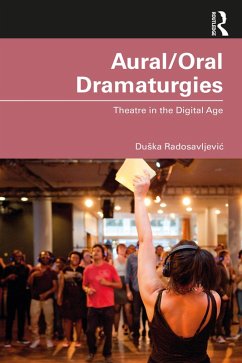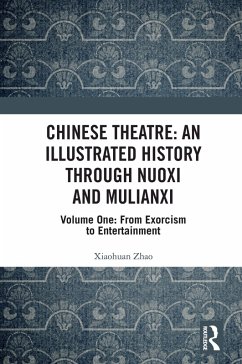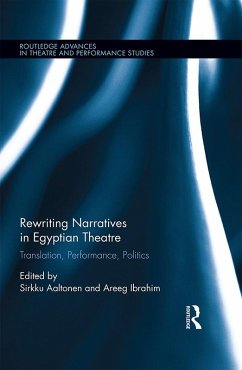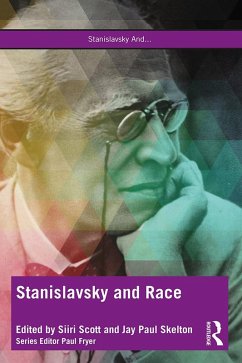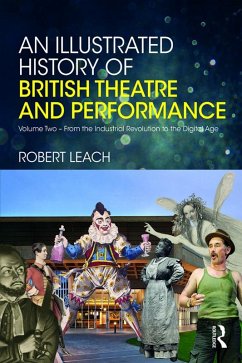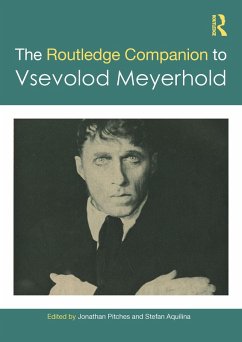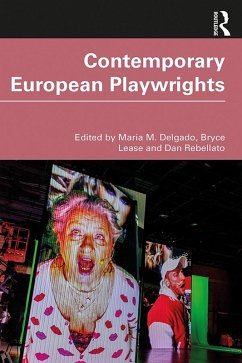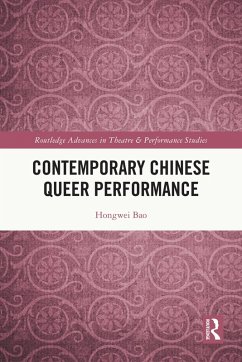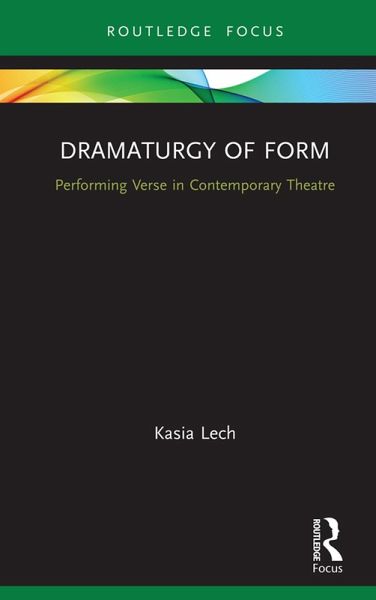
Dramaturgy of Form (eBook, PDF)
Performing Verse in Contemporary Theatre
Versandkostenfrei!
Sofort per Download lieferbar
18,95 €
inkl. MwSt.
Weitere Ausgaben:

PAYBACK Punkte
9 °P sammeln!
Dramaturgy of Form examines verse in twenty-first-century theatre practice across different languages, cultures, and media. Through interdisciplinary engagement, Kasia Lech offers a new method for verse analysis in the performance context.The book traces the dramaturgical operation of verse in new writings, musicals, devised performances, multilingual dramas, Hip Hop theatre, films, digital projects, and gig theatre, as well as translations and adaptations of classics and new theatre forms created by Irish, Spanish, Nigerian, Polish, American, Canadian, Australian, British, Russian, and multin...
Dramaturgy of Form examines verse in twenty-first-century theatre practice across different languages, cultures, and media. Through interdisciplinary engagement, Kasia Lech offers a new method for verse analysis in the performance context.
The book traces the dramaturgical operation of verse in new writings, musicals, devised performances, multilingual dramas, Hip Hop theatre, films, digital projects, and gig theatre, as well as translations and adaptations of classics and new theatre forms created by Irish, Spanish, Nigerian, Polish, American, Canadian, Australian, British, Russian, and multinational artists. Their verse dramaturgies explore timely issues such as global identities, agency and precarity, global and local politics, and generational and class stories. The development of dramaturgy is discussed with the focus turning to the new stylized approach to theatre, whose arrival Hans-Thies Lehmann foretold in his Postdramatic Theatre, documenting a turning point for contemporary Western theatre.
Serving theatre-makers, scholars, and students working with classical and contemporary verse and poetry in performance contexts; practitioners and academics of aural and oral dramaturgies; voice and verse-speaking coaches; and actors seeking the creative opportunities that verse offers, Dramaturgy of Form reveals verse as a tool for innovation and transformation that is at the forefront of contemporary practices and experiences.
The book traces the dramaturgical operation of verse in new writings, musicals, devised performances, multilingual dramas, Hip Hop theatre, films, digital projects, and gig theatre, as well as translations and adaptations of classics and new theatre forms created by Irish, Spanish, Nigerian, Polish, American, Canadian, Australian, British, Russian, and multinational artists. Their verse dramaturgies explore timely issues such as global identities, agency and precarity, global and local politics, and generational and class stories. The development of dramaturgy is discussed with the focus turning to the new stylized approach to theatre, whose arrival Hans-Thies Lehmann foretold in his Postdramatic Theatre, documenting a turning point for contemporary Western theatre.
Serving theatre-makers, scholars, and students working with classical and contemporary verse and poetry in performance contexts; practitioners and academics of aural and oral dramaturgies; voice and verse-speaking coaches; and actors seeking the creative opportunities that verse offers, Dramaturgy of Form reveals verse as a tool for innovation and transformation that is at the forefront of contemporary practices and experiences.
Dieser Download kann aus rechtlichen Gründen nur mit Rechnungsadresse in A, B, BG, CY, CZ, D, DK, EW, E, FIN, F, GR, HR, H, IRL, I, LT, L, LR, M, NL, PL, P, R, S, SLO, SK ausgeliefert werden.





